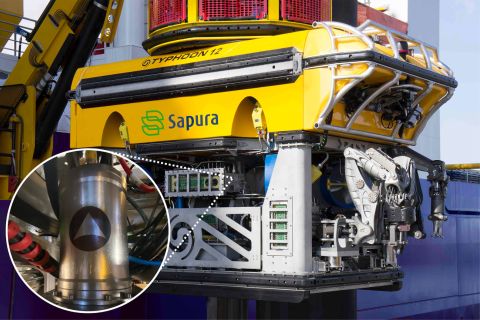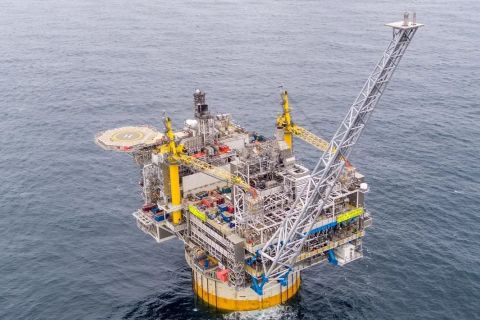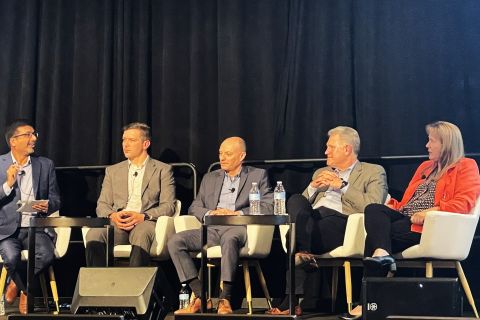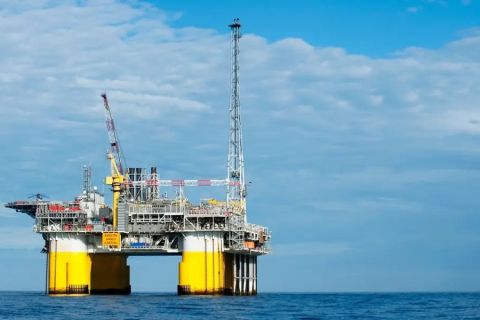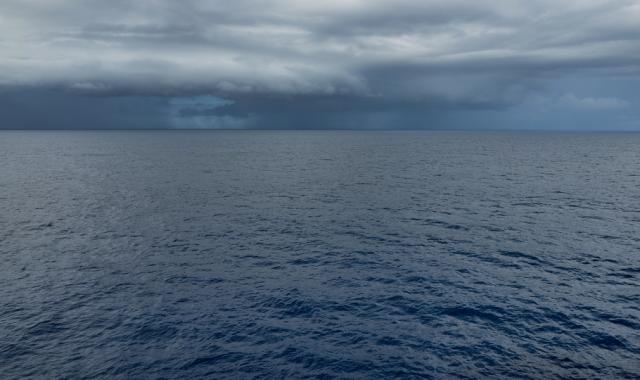
Offshore drillers could be in for their worst year since 2009, and next year could be even more painful, as drillers are forced to renew contracts at lower rates, according to Moody’s Investors Service.
The outlook comes as the industry braces for the unknown amid falling oil prices, a spending slowdown and lower demand that could further dampen the offshore drilling sector’s overcapacity woes.
“Upstream spending on offshore activities will likely contract by 10% to 15% in 2015 with $60 to $70 oil, and day rates could decline by another 20% to 30% from the leading-edge rates of late 2014,” Moody’s Sajjad Alam, assistant vice president-analyst, said in the firm’s report on the possible impacts of lower oil prices on E&P operations.
Citing ODS-Petrodata, the report said offshore drillers are set to deliver 54 floaters and 119 jackups through 2016, which will increase the floater fleet by 16% and the jackup fleet by 22%. However, about 55% of the floaters and 87% of the jackups had not secured contracts by early 2015. “Therefore, many of the uncontracted newbuilds will displace existing low-spec rigs that are idle or will require costly maintenance and inspection services.”
Trimming costs and becoming more operationally efficient will be the focus for rig companies in 2015, he continued.
“We expect no newbuild announcements without firm contracts, although we will see some consolidation as rigs and rig companies become available at discounts,” he said in the report. “Day rates and utilization of high-spec and low-spec rigs will increasingly diverge, and upstream companies will increasingly demand higher-quality rigs at lower day rates.”
High-quality rigs, diverse customers, healthy balance sheets and strong contracts are expected to lead to better performance for offshore drillers.
If the outlook holds true, companies like Seadrill Ltd. and Transocean could be in for a bumpy year, as the report pointed out that the two companies have the most uncontracted rigs under construction this year.
In December, Transocean said it would scrap seven lower-specification deepwater and midwater floaters, classifying them as for sale. The decision increased the number of lower-specification floaters that the company intends to or has already scrapped to 11 for that year.
“As the company continues to evaluate the long-term competitiveness of its fleet, additional rigs may be identified as candidates for scrapping,” Transocean said in the Dec. 18, 2014, fleet update summary.
Alam pointed out that Transocean, Diamond Offshore Drilling and Ensco have all taken asset write-downs in addition to stacking some older mid-water and deepwater rigs, “but many more rigs have to be deactivated to balance the market.” He added that the offshore rig industry did not do enough to alleviate the growing supply in 2014, with day rates failing to fall uniformly across basins and rig classes. “As upstream companies announce deep spending cuts, rig companies will be forced to make idling/stacking decisions sooner.”
The report also mentioned that Hercules Offshore and Paragon Offshore could face stress this year due to their large fleets of older jackup rigs and uncontracted positions. Hercules’ latest fleet status report showed the company has 10 rigs cold-stacked in the Gulf of Mexico.
Buckling to pressure to scrap rigs, especially the older and low-specification ones, could help restore the supply and demand for rigs. Transocean, for example, is already attempting to diversify its fleet. During the Cowen & Co. Ultimate Energy Conference on Dec. 2, Transocean CEO Steven Newman said he wants the company to have a more competitive position in the high-specification jackup market. The company is targeting the high-specification floater (ultradeepwater) and high-specification jackup market.
“As you look at the company’s committed fleet percentages going forward, about 60% of the ultradeepwater fleet and about 80% of the jackup fleet are committed for 2015, and that drops to about 40% for 2016. The further out you get, the less committed we are,” Newman said. “There’s no question that this is a tough market right now, but it should be no surprise to you that this is a cyclical industry.”
Offshore drillers are being hit as low oil prices continue to hit the budgets of E&P companies worldwide.
“If oil prices remain at around $55 a barrel through 2015, most of the lost revenue will hit the E&P companies’ bottom line, which will reduce cash flow available for reinvestment,” Steven Wood, managing director of corporate finance for Moody’s, said in a prepared statement.
Several companies, including BP and ConocoPhillips, have already announced spending cuts for 2015.
Contact the author, Velda Addison, at vaddison@hartenergy.com.
Recommended Reading
Sapura Acquires Exail Rovins’ Nano Inertial Navigation System
2024-02-01 - Exail Rovins’ Nano Inertial Navigation System is designed to enhance Sapura’s subsea installment capabilities.
Subsea Tieback Round-Up, 2026 and Beyond
2024-02-13 - The second in a two-part series, this report on subsea tiebacks looks at some of the projects around the world scheduled to come online in 2026 or later.
Fracturing’s Geometry Test
2024-02-12 - During SPE’s Hydraulic Fracturing Technical Conference, industry experts looked for answers to their biggest test – fracture geometry.
2023-2025 Subsea Tieback Round-Up
2024-02-06 - Here's a look at subsea tieback projects across the globe. The first in a two-part series, this report highlights some of the subsea tiebacks scheduled to be online by 2025.
Tech Trends: Safety, Speed, Savings: Automation is Transforming Drilling
2024-03-26 - Drilling is getting smarter through automation, delivering efficiency, consistency and reliability.

